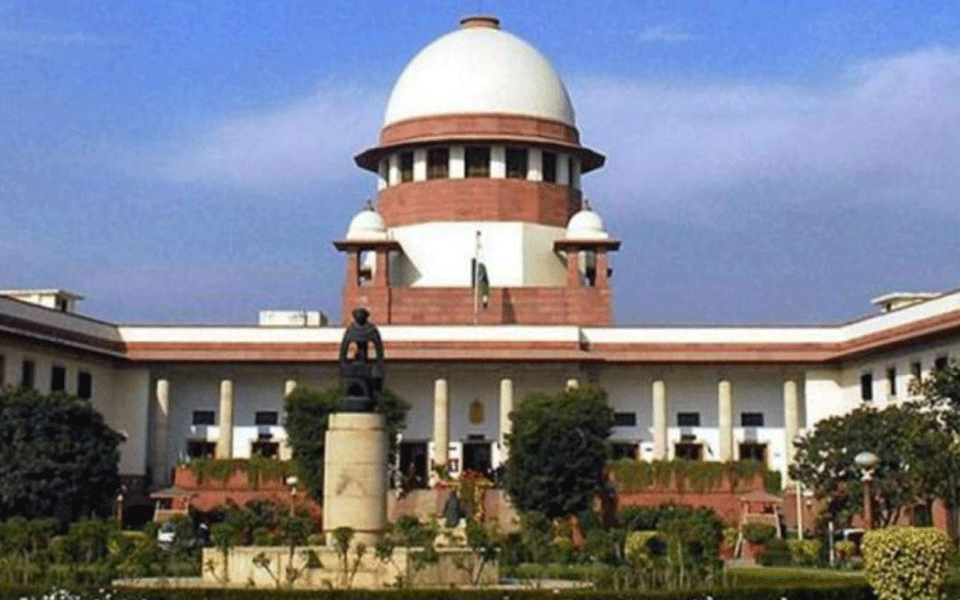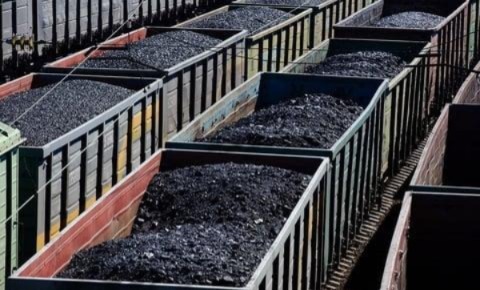New Delhi(PTI): Appointment on compassionate grounds is a concession not a right and the object of granting such employment is to enable the affected family to tide over a sudden crisis, the Supreme Court has said.
The apex court last week set aside the judgement of a division bench of the Kerala High Court, which confirmed the verdict of a single judge directing the Fertilisers and Chemicals Travancore Ltd and others to consider the case of a woman for appointment on compassionate grounds.
A bench of Justices M R Shah and Krishna Murari noted that the father of the woman was employed with Fertilisers and Chemicals Travancore Ltd and died while on duty in April 1995.
At the time of his death, it was noted, his wife was serving and therefore not eligible for appointment on compassionate grounds.
"After a period of 24 years from the death of the deceased employee, the respondent shall not be entitled to the appointment on compassionate ground," the bench said.
According to the law laid down by the apex court on appointment on compassionate grounds, equal opportunity for all government vacancies should be provided to all aspirants as mandated under Articles 14 and 16 of the Constitution.
Article 14 of the Constitution deals with equality before law and Article 16 with equality of opportunity in matters of public employment.
"However, appointment on the compassionate ground offered to a dependent of a deceased employee is an exception to the said norms. The compassionate ground is a concession and not a right," the bench said in its judgement delivered on September 30.
The apex court noted that when the employee died in 1995, his daughter was a minor. On attaining the age of majority, she made an application for an appointment on compassionate ground, the court said.
It also noted that after a period of around 14 years after his death, his daughter had submitted an application for an appointment on compassionate ground.
Referring to previous judgements of the top court, the bench said as per the law laid down, compassionate appointment is an exception to the general rule of appointment in the public services and is in favour of dependants of a person dying in harness and leaving his family in penury and without any means of livelihood.
In such cases, out of pure humanitarian consideration, a provision is made in the rules to provide gainful employment to one of the dependants of the deceased who may be eligible for such employment, the court said.
"The whole object of granting compassionate employment is, thus, to enable the family to tide over the sudden crisis. The object is not to give such family a post much less a post held by the deceased," the bench said.
Allowing the appeal filed by Fertilizers and Chemicals Travancore Ltd and others against the March this year verdict of the high court, the court said that if such an appointment is made now it shall be against the object and purpose for which the appointment on compassionate ground is provided.
Setting aside the high court judgement, it said both the single judge as well as the division bench had committed an error in directing the appellants to reconsider her case for appointment on compassionate ground.
The bench noted that her application for compassionate appointment was rejected in February 2018 on the grounds that her name was not in the list of dependants submitted by the deceased employee and that the policy was to give employment to the widow or son or unmarried daughter of the employee.
It also noted that in December 2019, the appellants had again rejected her application for appointment on compassionate ground on the grounds that 24 years had lapsed since the death of the employee. It also did not meet the primary test of scheme that the deceased employee should be the "sole bread winner of his family" since his wife was gainfully employed with the Kerala State Health Services Department at the time of his death, the bench said.
Let the Truth be known. If you read VB and like VB, please be a VB Supporter and Help us deliver the Truth to one and all.
Shillong (PTI): As the Meghalaya High Court pulled up the state government over the disappearance of over 4,000 tonnes of coal, a minister on Monday claimed that heavy rain in the state might have washed it away.
The high court has directed the state government to take action against officials under whose watch the coal went missing.
Speaking to reporters, Excise Minister Kyrmen Shylla said, "Meghalaya receives the highest rainfall. You never know... because of rain, the coal might have swept away. Chances are very high."
The high court had on July 25 pulled up the state government over the vanishing of coal from Rajaju and Diengngan villages and instructed it to trace those responsible for lifting the coal illegally.
The minister, however, clarified that he was not trying to justify the disappearance, and admitted there was no conclusive evidence yet to determine whether the loss was due to natural causes or any illegal activity. "I cannot blame just the rain. It could be or it could not be. I really don't have any kind of details," he said.
He asserted that any activity related to coal mining or transportation must be done in accordance with the law and that authorities must ensure illegal practices are curbed.
On allegations of ongoing illegal coal mining and transport in the state, Shylla said concrete evidence was needed to establish such claims and that multiple departments were responsible for monitoring such activities.
"But I believe that our people, if it is for survival, might do it illegally... otherwise nobody wants to do anything that can harm the state," he said.
He expressed optimism that people would abide by the law, especially after the government's announcement of scientific mining.
"We all are happy to welcome it, and we want to see the light of day with this. I believe our people will not do anything that gives the court or law a chance to point fingers at us," he added.
The ban on coal mining and transportation in Meghalaya was imposed by the National Green Tribunal (NGT) in 2014, citing rampant unregulated and unsafe mining practices, especially the controversial 'rat-hole' mining technique prevalent in the state.
The tribunal's order came in the wake of mounting concerns over environmental degradation, water contamination, and frequent fatalities in the hazardous mines, particularly in East Jaintia Hills.
On a separate note, the minister also responded to complaints over the dust and debris caused by the ongoing construction along National Highway 6 in East Jaintia Hills, saying, "I appreciate this government for the initiative. For now, it is difficult, but once everything is completed, we will enjoy the benefits."



